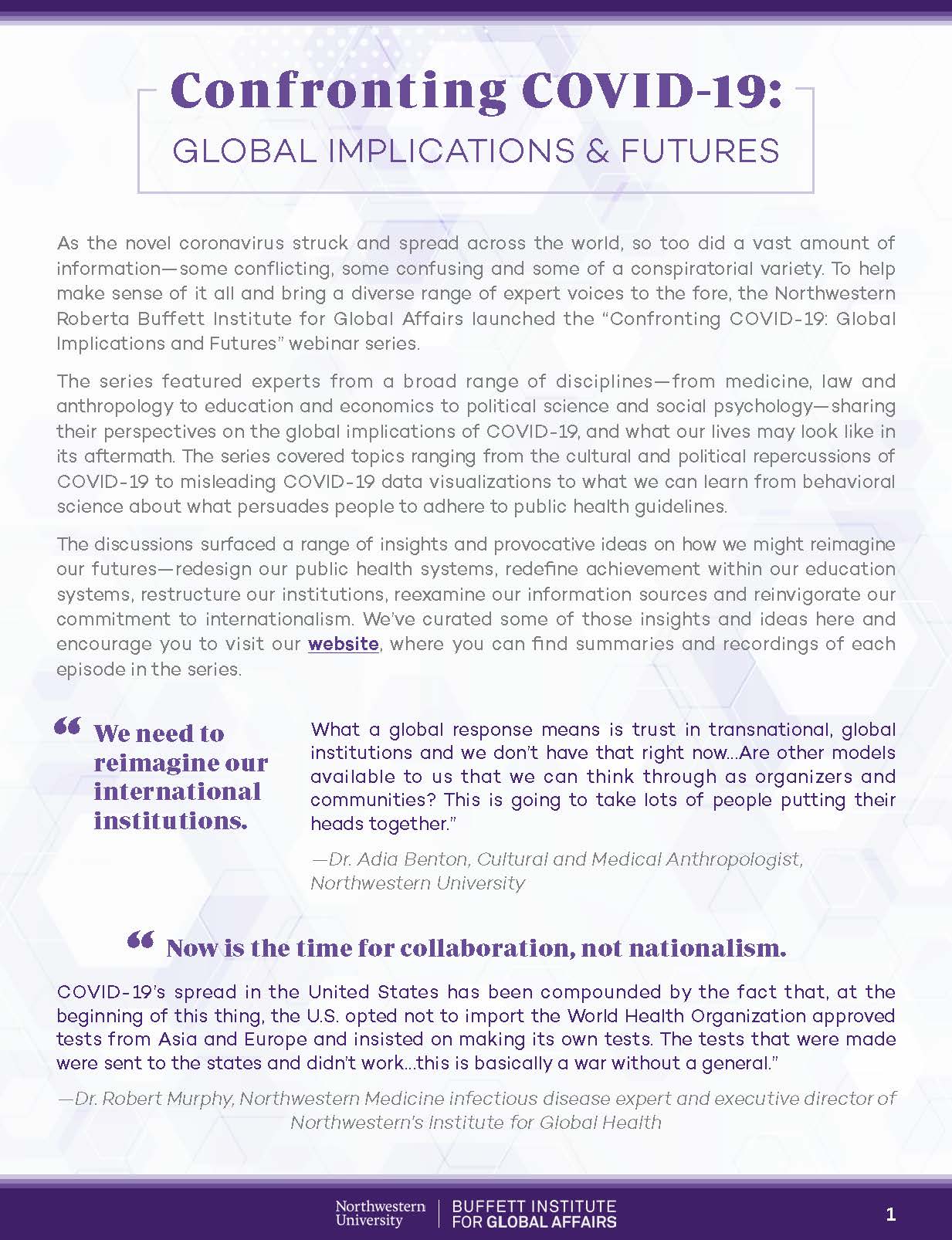COVID-19 Webinar Series Recap
This spring, in response to the COVID-19 global pandemic, the Northwestern Buffett Institute for Global Affairs hosted the “Confronting COVID-19: Global Implications and Futures” live webinar series across 16 episodes drawing attendees from a wide range of audiences, with more than 3,300 participants from 37 countries since its launch in March.
A consortium of both domestic and international speakers across interdisciplinary fields covered topics ranging from the cultural and political repercussions of COVID-19 and measures needed to blunt its impact to how COVID-19 is visualized—and sometimes misrepresented—in mainstream media, and what we can learn from the social and behavioral sciences about persuading people to adhere to public health guidelines.
Find key takeaways in addition video and audio recordings of each webinar below:
- Can’t Touch This: Anthropological Reflections on the Coronavirus Pandemic
- Blunting the Impact of COVID-19
- A Picture is Worth a Thousand Stories: Visualizing COVID-19
- Battling the Bottleneck: Moving Vital COVID-19 Medical Supplies to the Front Lines
- A New Normal: How Social and Behavioral Science Can Help Us Cope With COVID-19
- Thinking AIDS, Thinking COVID-19: Political Responses, Necropolitics, and Marginalized Populations
- Global Health, Human Rights, and Development in the Era of COVID-19
- The Power of Human: Disengagement and Engagement with Humanity Amid COVID-19
- Wilder Than the Weather: The Limitations of Predicting Pandemics
- Virulent Hate: Violent Responses to the COVID-19 Pandemic
- Viral Misinformation: Navigating Coronavirus “News” on Social Media
- COVID-19, Education, and Inequality: Reimagining Justice in Uncertain Times
- Surveying the Social and Cultural Impacts of COVID-19
- The Great Unraveling? Media, Geopolitics and the COVID-19 Pandemic
- Pandemics and Primary Health Care Resilience: Why This Matters Now and in the Future
- Prisons: A Petri Dish for COVID-19
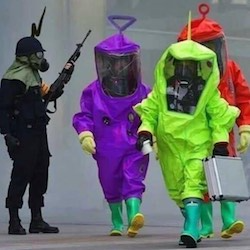 Can’t Touch This: Anthropological Reflections on the Coronavirus Pandemic
Can’t Touch This: Anthropological Reflections on the Coronavirus Pandemic
March 17, 2020
In the first offering of Northwestern Buffett's Confronting COVID-19: Global Implications and Futures webinar series, Northwestern University researcher Dr. Adia Benton discussed topics central to the COVID-19 pandemic raising provocative questions related to what is and isn’t known about COVID-19 and its transmission dynamics, as well as the implications of the response to COVID-19 for various forms of governance and our global society. Read more here.
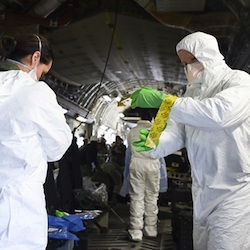 Blunting the Impact of COVID-19
Blunting the Impact of COVID-19
March 24, 2020
The novel coronavirus (COVID-19) is much more than a viral infection, with a mortality rate at least five times greater than influenza. Reverberations include stressing our health care system to the point of partial collapse and a kind of global social isolation never before experienced. Northwestern Medicine infectious disease expert and executive director of Northwestern’s Institute for Global Health, Dr. Robert Murphy, spoke about these issues and how we can blunt the impact of COVID-19 before it’s too late. Read more here.
 A Picture is Worth a Thousand Stories: Visualizing COVID-19
A Picture is Worth a Thousand Stories: Visualizing COVID-19
March 31, 2020
A picture is worth a thousand words, or so the saying goes. But it’s what a picture fails to say that can make it dangerous, especially in times of uncertainty. Northwestern computer science and journalism professor, Dr. Jessica Hullman, and University of Michigan information professor, Dr. Matthew Kay, discussed popular visualizations of COVID-19 circulating through the mainstream media and how they can be misinterpreted. Read more here.
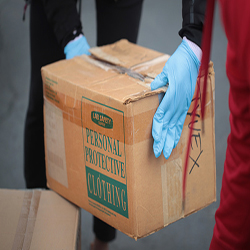 Battling the Bottleneck: Moving Vital COVID-19 Medical Supplies to the Front Lines
Battling the Bottleneck: Moving Vital COVID-19 Medical Supplies to the Front Lines
April 7, 2020
With the U.S. stockpile of medical supplies for combating COVID-19 nearly depleted, a clogged global supply chain, and a “Wild West-style” online marketplace rife with hoarders and price gougers, what can be done to get medical supplies to health care workers on the front lines of the fight against COVID-19? Northwestern University Transportation Center Director and multimodal transportation systems expert, Dr. Hani Mahmassani, and Northwestern professor of computer science, Dr. Kris Hammond, addressed these questions and more. Read more here.
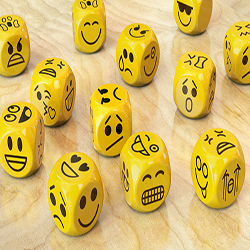 A New Normal: How Social and Behavioral Science Can Help Us Cope With COVID-19
A New Normal: How Social and Behavioral Science Can Help Us Cope With COVID-19
April 14, 2020
With social distancing and shelter-in-place mandates in effect worldwide, the COVID-19 pandemic is necessitating large-scale behavior change and taking a significant psychological toll. How can leaders and the media promote cooperative behavior? What kind of messages work best? Northwestern University professor of political science Dr. Jamie Druckman and University of Cambridge social psychology professor Dr. Sander van der Linden addressed these questions and more, drawing on a century of social science research that sheds light on how to better align human behavior with public health officials’ recommendations. Read more here.
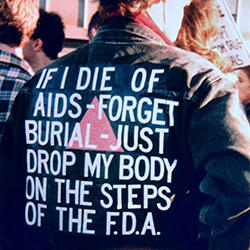 Thinking AIDS, Thinking COVID-19: Political Responses, Necropolitics, and Marginalized Populations
Thinking AIDS, Thinking COVID-19: Political Responses, Necropolitics, and Marginalized Populations
April 21, 2020
Countless headlines of late have compared the novel coronavirus (COVID-19) to HIV/AIDS. When are these comparisons useful and when are they misleading? And what can both pandemics teach us about marginalized populations and racism? Northwestern Medill School of Journalism professor Dr. Steven Thrasher joined a Northwestern Buffett Institute on Global Affairs webinar for a discussion on these questions and more. Read more here.
 Global Health, Human Rights, and Development in the Era of COVID-19
Global Health, Human Rights, and Development in the Era of COVID-19
April 28, 2020
Government restrictions on movement and economic activities in response to COVID-19 have disrupted many small businesses, especially those of already vulnerable populations like the displaced Syrian and Iraqi refugee communities in Lebanon and neighboring countries. How does the COVID-19 pandemic exacerbate existing challenges for refugees and create new ones? What are the prospects for a return to financial self-sufficiency for individuals in war-torn countries and already vulnerable communities? Northwestern University Pritzker School of Law professor Juliet Sorensen and Near East Foundation President Dr. Charles Benjamin joined a Northwestern Buffett Institute for Global Affairs webinar for a discussion on these questions and more. Read more here.
 The Power of Human: Disengagement and Engagement with Humanity Amid COVID-19
The Power of Human: Disengagement and Engagement with Humanity Amid COVID-19
May 5, 2020
In recent decades, we’ve witnessed a global seismic shift away from collectivism and toward individualism. Humans increasingly feel disengaged and distrustful of those around them due, in part, to the rise of automation, political polarization, stratification, and marketization. This trend has undoubtedly influenced our response to COVID-19 and will likely have serious implications for the nature of human relationships well after the pandemic ends. Drawing on his recent book, “The Power of Human: How our shared humanity can help us create a better world,” social psychologist and Northwestern Kellogg School of Management professor Dr. Adam Waytz joined the Northwestern Buffett Institute for Global Affairs for a discussion on dehumanization trends and what they mean for our future. Read more here.
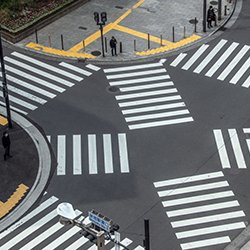 Wilder Than the Weather: The Limitations of Predicting Pandemics
Wilder Than the Weather: The Limitations of Predicting Pandemics
May 12, 2020
How can changes in human behavior alter the progression of COVID-19? That is the question as government and public health leaders worldwide look to identify what kind of policies are working to stem the spread of the virus and when it's safe to reopen for business. However, the answers remain elusive: while epidemiologists have developed models that enable anyone to understand the basic mechanisms responsible for the spread of an infection, they have yet to develop models that can predict what millions of people will do in response to the progression of a global pandemic like COVID-19 and how that impacts rates of infection and death.
Northwestern professor of chemical and biological engineering Luis A. Nunes Amaral discussed the limits of models that predict the spread of pandemics, and what's needed to make them stronger. He was joined by Marta Sales-Pardo, Associate Professor of Chemical Engineering, and Roger Guimera, Catalan Institution for Research and Advanced Studies professor, both from Rovira i Virgili University. Read more here.
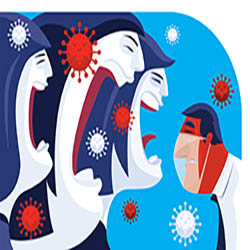 Virulent Hate: Violent Responses to the COVID-19 Pandemic
Virulent Hate: Violent Responses to the COVID-19 Pandemic
May 19, 2020
As COVID-19 has spread around the world, so have anxiety, fear—and scapegoating. But who’s being blamed, why, and with what consequences? Anti-Asian hate incidents have risen sharply, from the U.S. and UK to Brazil, Kenya, Ethiopia, and South Africa. Refugees and migrants have borne the brunt of hate in Europe. In India and Sri Lanka, Muslims are accused of purposefully disseminating the virus as a form of jihad, while racist memes and anti-Jewish sentiments proliferate online. How are we to understand the pernicious spread of bigotry and violence? What are the repercussions not only for targeted communities, but for national cohesion and global connection? The panel included Lauren Stokes (Assistant Professor of Histo ry, Northwestern); Ray San Diego (Visiting Assistant Professor of Asian American Studies, Northwestern), Melissa Borja (Assistant Professor of American Culture, University of Michigan); Britta Ohm (Associate Researcher, Institute of Social Anthropology, Bern University), and Ariel Schwartz (Associate Director of Research, Northwestern Buffett). Read more here.
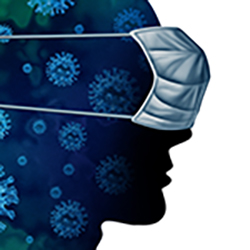 Viral Misinformation: Navigating Coronavirus “News” on Social Media
Viral Misinformation: Navigating Coronavirus “News” on Social Media
May 26, 2020
The power of social media is in its speed and sprawl – but what do we know about social media use amidst a global pandemic? What happens when misinformation – from the 5G conspiracy to the Plandemic documentary – goes viral? How is misinformation about COVID-19 distinct from other forms of misinformation and how can we combat it?
Northwestern University Professor of Communication Studies Dr. Pablo J. Boczkowski and Dr. Claire Wardle, co-founder and director of the non-profit First Draft, addressed these questions and more, drawing on misinformation trends and 'infodemic' cases from around the world. Read more here.
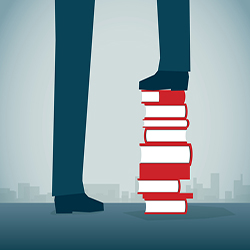 COVID-19, Education, and Inequality: Reimagining Justice in Uncertain Times
COVID-19, Education, and Inequality: Reimagining Justice in Uncertain Times
June 2, 2020
The COVID-19 pandemic has raised urgent questions not only about access to education, but also about education’s deeper purposes, challenges and possibilities. Dr. Sally Nuamah and Dr. Shirin Vossoughi provided a critical analysis of current educational discourse, policy and practice, drawing on their scholarly perspectives and experiences as educators. Read more here.
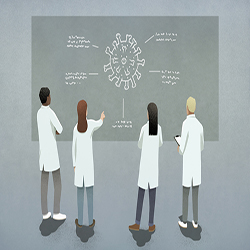 Surveying the Social and Cultural Impacts of COVID-19
Surveying the Social and Cultural Impacts of COVID-19
June 9, 2020
Months into the novel coronavirus pandemic, researchers around the world are working to understand its effects on people’s attitudes and behaviors. How do people feel about isolation and lockdowns? How do different information sources affect public knowledge of COVID-19 and social distancing practices? What are people willing to sacrifice for the economy? Northwestern University assistant professor of sociology Dr. Beth Redbird and Kyiv School of Economics assistant professor Dr. Tymofiy Brik addressed these questions and more, drawing on large-scale surveys of citizens in the United States and the Ukraine. Read more here.
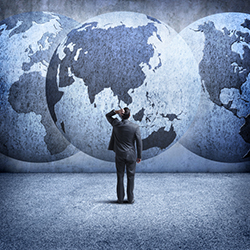 The Great Unraveling? Media, Geopolitics and the COVID-19 Pandemic
The Great Unraveling? Media, Geopolitics and the COVID-19 Pandemic
June 16, 2020
What do new physical boundaries mean for our understanding of identity and geopolitics? How will the COVID-19 pandemic affect U.S. global influence? What rival media narratives are emerging amid COVID-19? Global media authority and incoming Northwestern University-Qatar dean Dr. Marwan Kraidy joined the Northwestern Buffett Institute for Global Affairs for a “tour d’horizon” of the repercussions of COVID-19 on media and geopolitics. Read more here.
 Pandemics and Primary Health Care Resilience: Why This Matters Now and in the Future
Pandemics and Primary Health Care Resilience: Why This Matters Now and in the Future
June 23, 2020
The COVID-19 pandemic has upended the delivery of routine and emergency medical care around the world. Primary care systems that often serve as a first point of medical contact are stretched and stressed, making the delivery of comprehensive and coordinated care a challenge. Northwestern Feinberg School of Medicine professors Dr. Lisa Hirschhorn and Dr. Mark Huffman and the University of Abuja Teaching Hospital’s Dr. Anthony Orji joined the Northwestern Buffett Institute for Global Affairs for a discussion on what COVID-19 is revealing about how primary care systems worldwide can grow more resilient and better equipped to handle the next inevitable pandemic. Read more here.
 Prisons: A Petri Dish for COVID-19
Prisons: A Petri Dish for COVID-19
June 30, 2020
United States prisons house 25 percent of the world’s 10.35 million imprisoned people, and five of the top 10 COVID-19 hot spots in the U.S. are prisons or jails. What can we learn about pandemics and public health in prisons from the country with the world’s largest prison population? Northwestern University professor and Prison Education Program (NPEP) Director Dr. Jennifer Lackey and Uptown People’s Law Center Executive Director Alan Mills joined the Northwestern Buffett Institute for Global Affairs for a discussion on COVID-19 contagion in U.S. prisons and what measures could help curtail it. They were joined by NPEP student Antonio McDowell, who was recently released from Illinois’ Stateville Correctional Center and shared his firsthand account of serving time there amidst COVID-19. Read more here.

